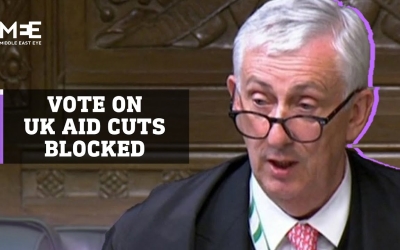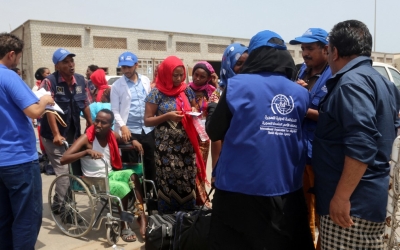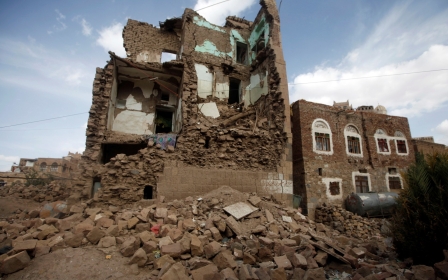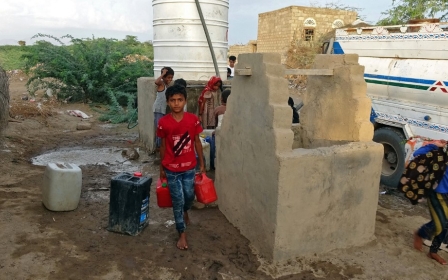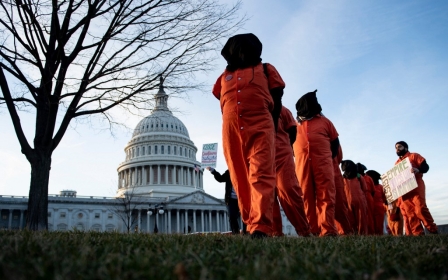Yemen aid programmes may close if donors fail to meet funding pledges, US warns
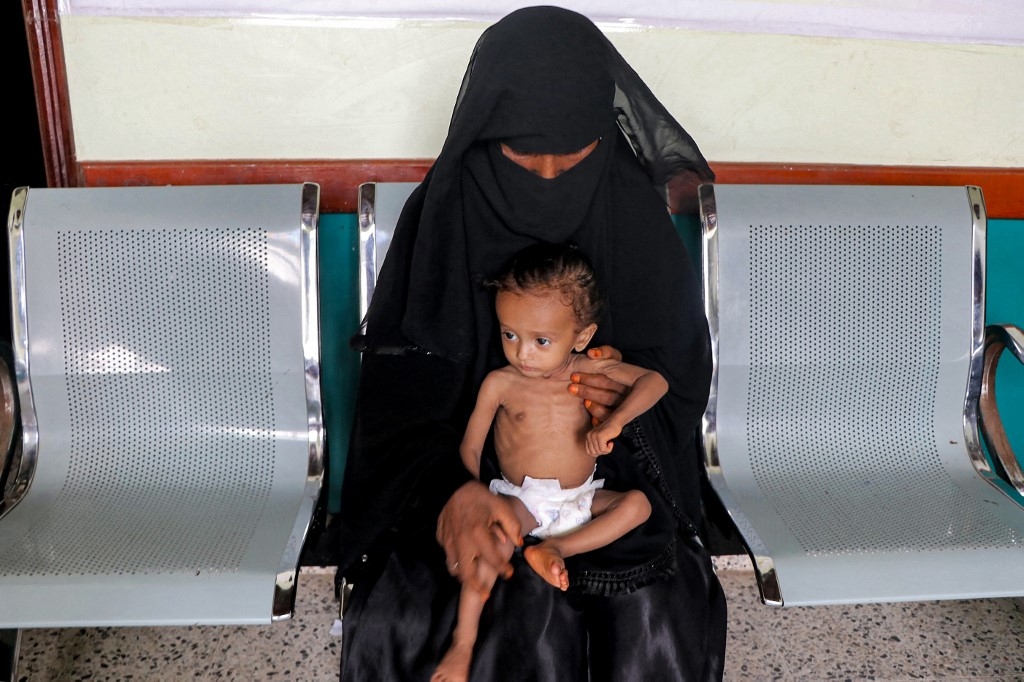
Aid programmes in Yemen may soon have to close despite dire humanitarian needs if countries do not fulfill promises to increase funding, the US has warned.
US special envoy to Yemen, Timothy Lenderking, speaking at a webinar on Thursday, called on the international community - particularly regional powers - to quickly meet their donation pledges for Yemen, which has been facing what the UN has described as "the world's worst humanitarian crisis".
New MEE newsletter: Jerusalem Dispatch
Sign up to get the latest insights and analysis on Israel-Palestine, alongside Turkey Unpacked and other MEE newsletters
Lenderking said humanitarian programmes in Yemen could begin to close within the next few months if contributions do not begin to increase.
Yemen, now in its sixth year of war, has lost tens of thousands of civilians to violence, hunger and disease. According to the UN, 24.1 million people – 80 percent of the population - rely on humanitarian aid and protection to survive, while 58 percent of the population lives in extreme poverty.
The United Nations alone has 21 resident and non-resident agencies, funds, and specialised programmes running in Yemen, attempting to meet the need.
Still, the international community has for several years failed to meet funding benchmarks laid out as necessary for civilian survival.
'Growing needs'
Earlier this year, world governments pledged donations that totalled around $2.1bn, but that funding has been slow to come in. For its part, the United States has allocated $350m in aid and promised to provide further funds in the coming months to help cover gaps.
'The fact is that more funding is required to address growing needs'
- Sarah Charles, USAID
In April, the World Food Programme (WFP) had to cut its food aid, making deliveries only every other month in parts of Yemen controlled by the Houthi movement after donors cut funding, partly over concerns about the obstruction of aid.
There was a slight increase in funds provided during that time, as UN officials warned that Yemen was on the brink of the world's worst famine in decades as violence escalated amid the Covid-19 pandemic.
Still, humanitarian workers are deeply concerned. Sarah Charles, a senior official with the US Agency for International Development (USAID), echoed Lenderking's warning during Thursday's webinar, which was hosted by the National Council on US-Arab Relations.
"We commend the generous pledges made by other generous donors so far this year," she said. "But the fact is that more funding is required to address growing needs."
'Realities on the ground'
David Gressly, a United Nations official resident and humanitarian coordinator in Yemen, also warned that humanitarian groups are having problems reaching some six million Yemenis.
Gressly said as many as 300 migrants may have died after a ship capsized recently off Yemen’s coast, highlighting the risks of a longstanding migration route from the Horn of Africa to the rich Gulf states in search of work.
Gressly seemed to be referring to an incident when a number of bodies washed up on Yemen's Red Sea coast earlier this month after a migrant boat sank offshore.
Fishermen found the bodies floating in the waters of Ras al-Ara in the southern province of Lahij, an area so rife with human trafficking that the locals call it the "Gate of Hell".
The migrant crisis is adding more pressure on the already dire humanitarian situation in Yemen, Gressly added.
Nevertheless, Lenderking expressed hope for a ceasefire between the Saudi-led coalition and the Iran-aligned Houthis to alleviate the crisis.
"My experience from the Houthis is that they have spoken about a commitment towards peace in Yemen.... We continue to engage with them," Lenderking said.
"The United States recognises them as a legitimate actor, we recognise them as a group that has made significant gains. No one can wish for them away or out of the conflict, so let’s deal with realities that exist on the ground," he added.
The Houthi movement was briefly added to a US blacklist of officially designated terrorist groups by the Trump administration, but President Joe Biden and his administration quickly reversed the move and began working on ways to end the drawn-out proxy war.
Middle East Eye delivers independent and unrivalled coverage and analysis of the Middle East, North Africa and beyond. To learn more about republishing this content and the associated fees, please fill out this form. More about MEE can be found here.


